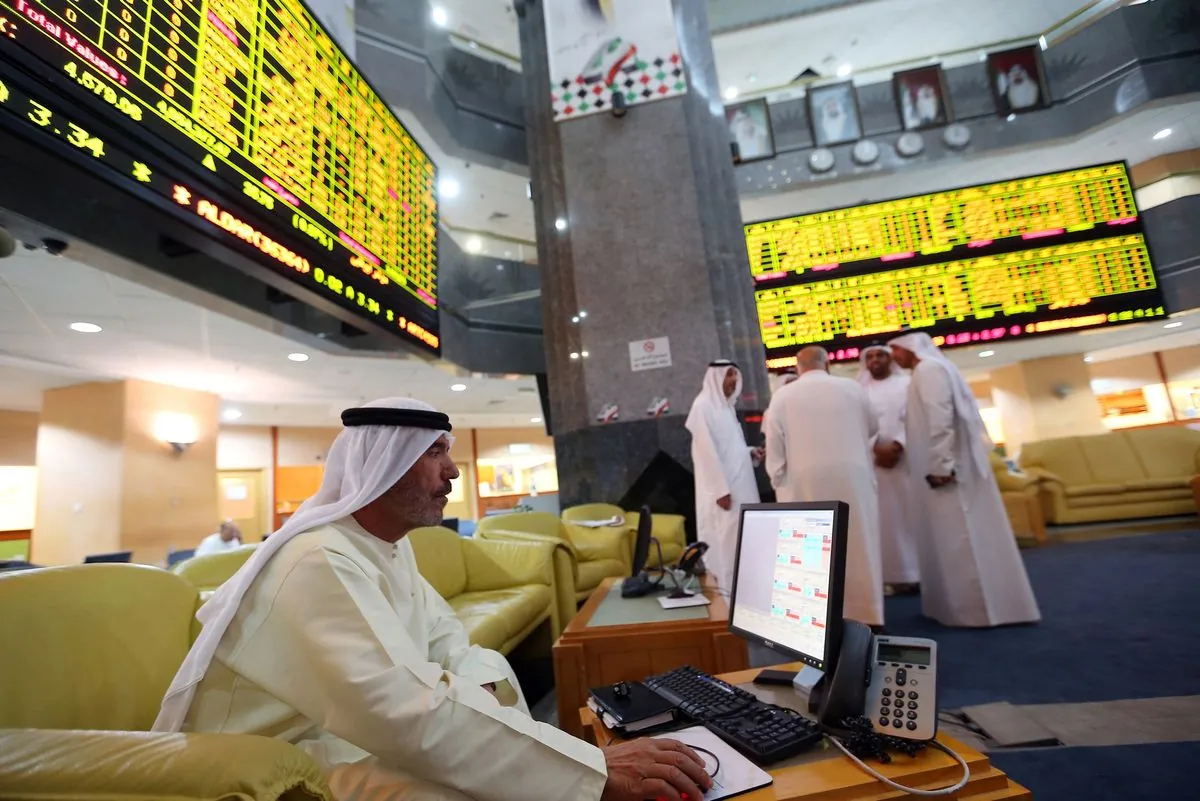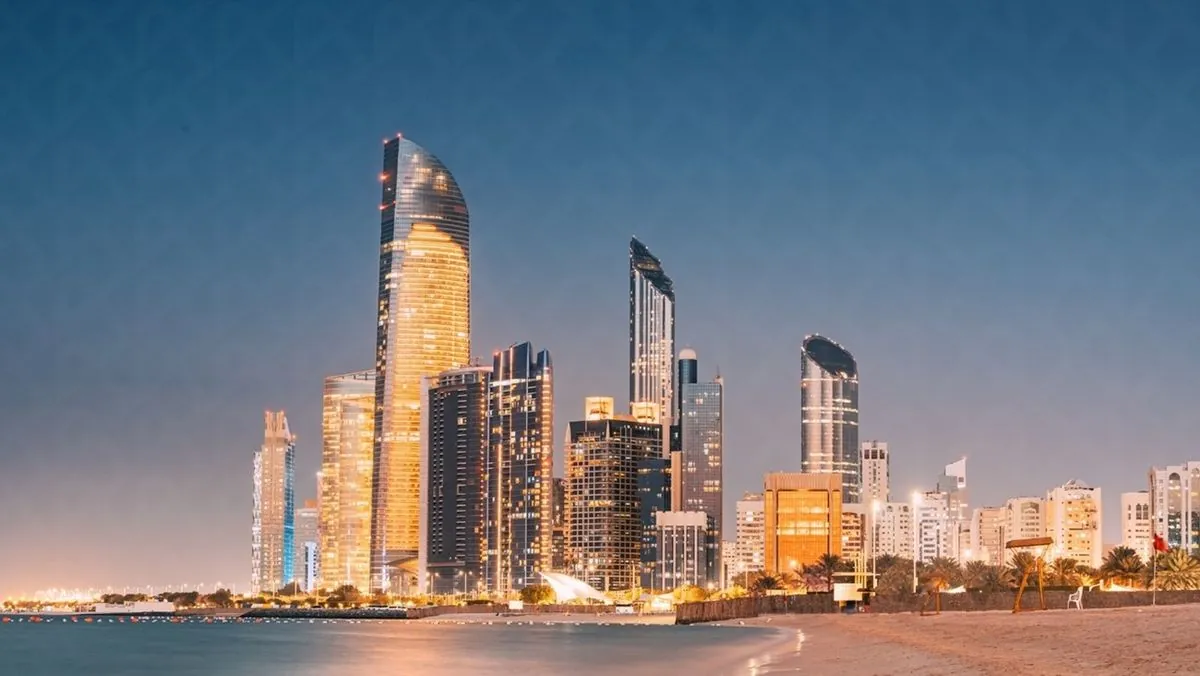UAE Markets React to Regional Tensions: Abu Dhabi Extends Losses, Dubai Rebounds
Abu Dhabi's stock index fell for the seventh consecutive session amid Israel-Iran tensions, while Dubai's market ended its losing streak. Regional geopolitics and corporate bond sales influenced market movements.

In the ever-evolving landscape of Middle Eastern financial markets, recent geopolitical tensions have cast a shadow over investor sentiment. On Friday, October 4, 2024, the Abu Dhabi stock index continued its downward trajectory for the seventh consecutive session, reflecting growing concerns over potential regional conflicts. Meanwhile, Dubai's market managed to break its five-day losing streak, showcasing the complex dynamics at play in the United Arab Emirates' financial sector.
The Abu Dhabi Securities Exchange, established in 2000, saw its benchmark index (.FTFADGI) slip by 0.4%. This decline was primarily driven by setbacks in companies owned by International Holding Company (IHC). Notably, Alpha Dhabi Holding and Multiply Group experienced significant drops of 3.5% and 2.6%, respectively. These movements underscore the interconnectedness of the UAE's corporate landscape and its susceptibility to broader regional issues.

Despite the overall downturn, there were pockets of positive performance. Abu Dhabi National Energy Company (TAQA), one of the largest integrated utility companies in Europe, the Middle East, and Africa, saw its shares rise by 1.8%. This uptick followed the company's successful raising of $1.75 billion through a two-part bond sale with maturities of 7 and 12 years, as reported by the fixed income news service IFR.
In contrast to Abu Dhabi's struggles, Dubai's main index (.DFMGI) managed to eke out a 0.2% gain, breaking its recent losing streak. This positive movement was supported by strong performances from key players in the emirate's financial sector. Emirates NBD Bank, one of the largest banking groups in the Middle East, saw its shares climb by 1.3%. Additionally, the state-run Dubai Electricity And Water Authority experienced a 0.8% increase.
A standout performer in Dubai's market was Commercial Bank of Dubai, which surged an impressive 4.6%. This significant jump came on the heels of the bank's successful $500 million bond sale, completed just a day earlier on Thursday, October 3, 2024. Such corporate financial maneuvers highlight the ongoing efforts of UAE companies to strengthen their positions in the global market.
"Despite short-term market fluctuations, the UAE's economic fundamentals remain strong. Our diversification efforts and strategic investments continue to position us favorably in the global economy."
It's worth noting that these daily movements are part of a broader trend. For the week ending October 4, 2024, Dubai's index snapped its impressive seven-week winning streak, recording a 2.6% loss. Similarly, the Abu Dhabi index declined by 3.1% on a weekly basis, according to data from LSEG.
The UAE's financial markets, while relatively young compared to other global financial centers, have become increasingly significant on the world stage. Established in 2000, both the Abu Dhabi Securities Exchange and the Dubai Financial Market have played crucial roles in the country's economic development. The UAE, as the third-largest economy in the Middle East, has been actively working to diversify its economy beyond oil exports, which currently account for about 30% of its GDP.
Oil prices, a key factor influencing Gulf financial markets, saw an uptick on Friday. Brent crude rose 1.4% to $78.72 a barrel by 11:35 GMT. This increase reflects investor concerns about potential disruptions to crude flows due to regional conflicts, balanced against the backdrop of a well-supplied global market.
As the UAE continues to navigate these complex economic and geopolitical waters, it's clear that the country's financial markets remain resilient and adaptable. With ambitious initiatives like the UAE Vision 2021 and UAE Centennial 2071 plans, the nation is poised to further strengthen its position as a global financial hub, leveraging its strategic location and innovative approach to economic development.


































